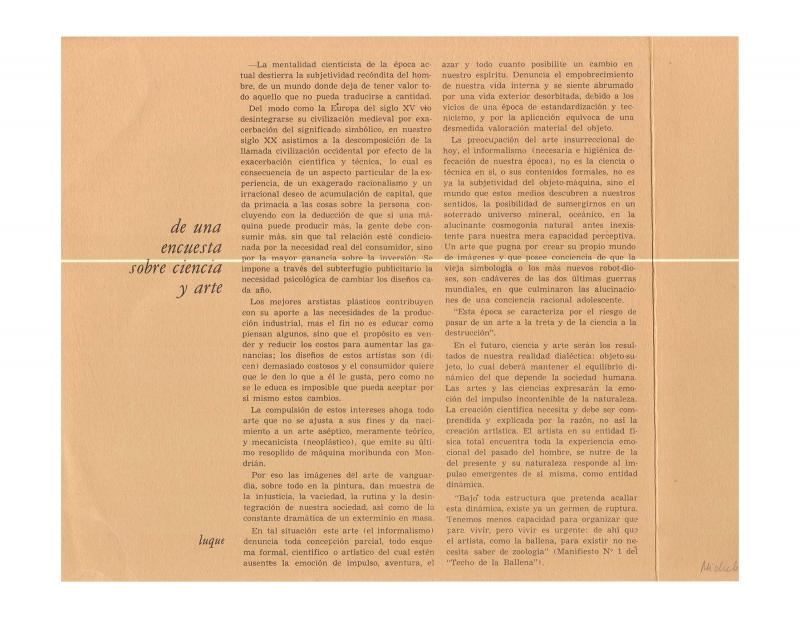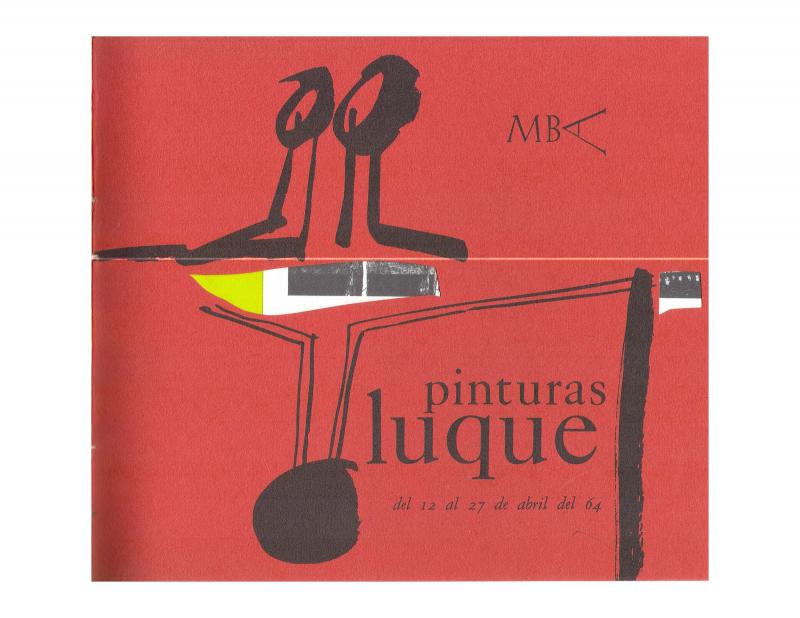This essay by the Spanish artist Angel Luque (b. 1927), who lived in Venezuela for around ten years (1955–67), was included in the catalogue for the exhibition Luque:Dibujos, held at the Museo de Bellas Artes in Caracas in 1965. The artist is very frank in his writing for this text, and although by then he has backed off from the “violent” tone of his earlier statements (MBA 1960), he still maintains the “dissatisfaction” typical of his personality. By 1965, Luque was no longer an unknown painter, having been awarded the National Prize for Drawing and Printmaking three years earlier. This essay is contradictory: the fact that his work is being “accepted” and that some of these works even “look very good” presents a conflict with the personality and character he has established in Venezuela. It is important to know the main motivation that was the underpinning of his creative work: a simple desire for justice, which arose from his dissatisfaction with human society. One of the basic concepts applied by Luque throughout his work is that of “risk,” and it is in this essay where—allegedly because of a critic’s misunderstanding—he decides to explain it. He believes that “risk” is not limited to the undertaking of painting, creation or experimentation; in his opinion, it applies to all aspects of life. To be free involves “risk;” this is why he is dissatisfied with his works that do not reflect the “risk” of living. Once again, Luque emphasizes how uninteresting he finds critical opinion about his work. The artist believes that all painters should reflect in their work not only aesthetic progress innovations, but also their own concerns about the world and human society.
There is another text written by Luque himself that complements this perspective, a criticism of both the exaggerated rationalism that prevailed in the twentieth century and the capitalist system itself in “De una encuesta sobre ciencia y arte,” (ICAA digital archive doc. no. 1168024). Luque wrote an in-depth explanation of his own artistic commitment to society in an essay published in his catalogue, Pinturas: Luque (doc. no. 1156720).


